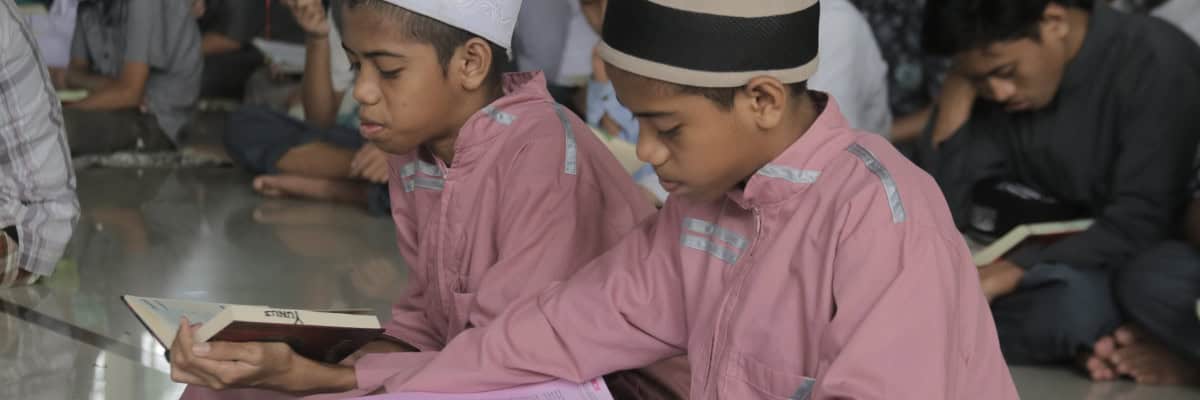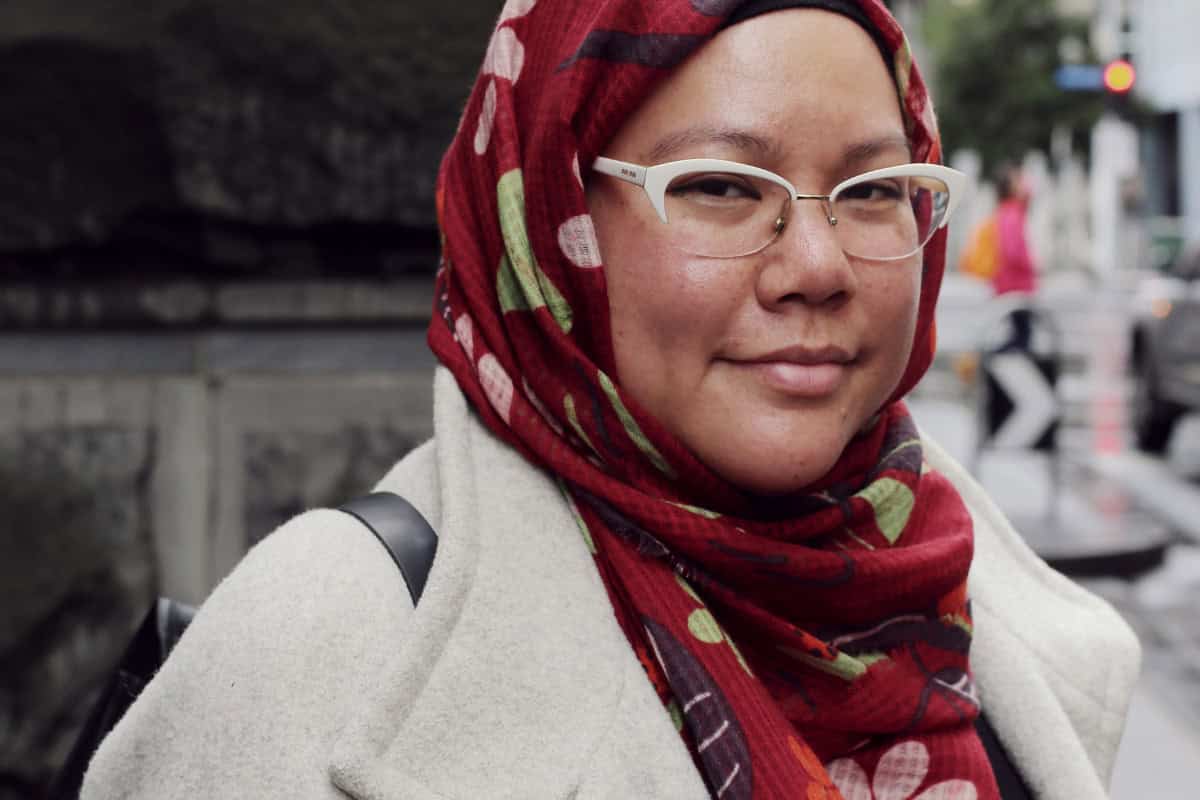Indonesia is a constitutional democracy constructed on the Republican model: according to the country’s constitution, political power emanates from the people, not from God.
Nevertheless, public and political life in the Republic is thick with religion, reflecting the strong enthusiasm for religion amongst Indonesians.
Indonesia’s Ministry of Religion plays a major role in administering religion and, even though it is tasked with serving all the nation’s religions, it is especially important for Muslims who comprise just under 90% of the population. The Ministry is effectively a Ministry of Islam.
Though, Indonesia’s Islamic diversity makes the Ministry’s brief inherently challenging.
One key political fault line is the tension between those holding the view that Islam adapts dynamically to economic, social and political progress, and those who insist that the institutions of Indonesian Islamic tradition need to be preserved and supported at all costs. The latter believe that these traditions are an essential resource for the Republic. Both orientations have large support bases in Indonesia.
Contrasting approaches to education
Before independence in 1945, these two groups had developed contrasting educational styles. The scholar Ervan Nurtawab looked at the placement of chairs in the classroom in order to illustrate their different approaches to teaching and learning.
In the early twentieth century, progressive Muslim educators observed and adapted the classroom layout used by Dutch colonial educators: students sat on chairs at equal level with each other and the teacher.
By contrast, in the Islamic institutions known as the pesantren, only the head teacher (kyai) sat on a chair.
The pesantren’s hierarchy demanded that the learner sit below the revered teacher.
As Indonesia’s national awakening gained momentum in the twentieth century, many nationalist intellectuals attacked the hierarchy of the pesantren classroom.
An educational system dominated by this hierarchy, they thought, would invariably produce passive subjects unprepared for the demands of the modern public sphere. Furthermore, the national, non-religious education system was based on a principle of universal education for all.
In these classrooms, chairs were furniture that would help learners become equal, participatory citizens — not tools to affirm hierarchies.
Other intellectuals defended the kyai and pesantren by pointing out that they stood at the centre of a cosmologically-informed social order that brought security and nurtured resilience among large communities at the lower end of the socio-economic spectrum.
Pesantren were not just concerned with education: they were also central to the maintenance of the faith and community empowerment.
Furthermore, Indonesia’s pesantren had provided education to Indonesians for decades prior to independence.
Equalising education
In the colonial era, the only native Indonesians to receive a government education were the children of the elites upon whom the Dutch relied for their colonial apparatus.
With this history, supporters of traditional pesantren ask ‘Shouldn’t traditional Islamic pedagogical styles and institutions be valued as a national resource?’
The Indonesian Ministry of Religion continues to wrestle with this challenge. It has been the protector of those sections of Indonesian Islam for which the kyai and pesantren are icons.
At the same time, the Ministry has also been the motor for educational reform. In a series of policy and legislative innovations, Islamic institutions have been brought into the national education system.
There is a characteristic pattern to this process: Islamic curricula and institutions are formalised and bureaucratised, while simultaneously, the qualifications of Islamic graduates are formally ‘equalised’ with the standards of graduates of the national, public education system.
Giving equal recognition to graduates of both is intended to reassure Indonesians that the pesantren education is valued and respected.
In 1975, a milestone law was passed when three Ministers (Religion, Education and Internal Affairs) co-signed a policy that specified different time allocations for the teaching of religious and non-religious subjects at Islamic schools.
This law was to apply not to the pesantren in the traditional sense, but to those Islamic schools that had already adapted classroom styles, known as madrasah.
The law stipulated that 70% of class time was to be dedicated to non-religious curriculum, while 30% focused on religion. The qualifications of madrasah graduates were also formally recognised as being equivalent to graduates from the national system. The madrasah thenceforth had equal status with the equivalent institutions in the public (i.e. non-religious) system.
The Pesantren Law of 2019 — undue special attention or long-overdue recognition?
The most recent policy move was the passing of the ‘Pesantren Law of 2019’.
This law increased formal recognition of the pesantren and the kyai in the national education system, furthered the equalisation of qualifications, and opened the possibility for the pesantren to receive financial and material support from government without complying with the formal requirements established in previous education policy.
For Muslims associated with those institutions, the Pesantren Law is long-overdue recognition of their value to the nation.
But others disagree.
The Islamic civil society organisation Muhammadiyah, which had earlier modernised its teaching styles, pointed out that changes such as these should be passed as amendments to the comprehensive law on national education that the Indonesian parliament had passed in 2003. This law had undergone lengthy and inclusive public consultation processes.
A new, special Pesantren Law was unnecessary and gave undue special attention to this version of Islamic education. Muhammadiyah regarded the granting of privileges to one religious group above others, in a separate act of parliament, as problematic.
They were also concerned that this separate treatment would mean that the pesantren could access funds from the 20% of national budget allocated to education by Indonesian law.
Muhammadiyah expressed concern about the Pesantren Law’s definition of pesantren.
For almost a century Muhammadiyah had been transforming their pesantren to ensure that the education they provided reflected changes in technology, social mores, economics and politics.
The 2019 Law defined the pesantren and kyai in more traditional ways, and was contrary to the spirit and goals of Muhammadiyah’s dynamic conception of pesantren education.
Electoral politics are also significant in the debate between the traditional and reformist visions of Islamic education. The current government receives strong support from people that value traditional notions of kyai and pesantren — most of whom are located on the populous island of Java.
Its leadership group includes politicians who are graduates of these schools. The Ministry of Religion is usually headed by a person who has close ties to those particular Javanese populations.
Not surprisingly, critics of the government regarded the Pesantren Law as a gift to this constituency.




